10 Best Herbal Capsules For Depression

Herbal capsules for depression are natural supplements that contain plant-based ingredients believed to support mood regulation and emotional well-being.
Common herbs used in these capsules include St. John's Wort, Ashwagandha, and Rhodiola rosea, which have been traditionally used to alleviate symptoms of mild to moderate depression. These supplements are often preferred by individuals seeking alternative or complementary treatments to conventional antidepressants. While they may offer a gentler approach with fewer side effects, it is important to consult a healthcare professional before starting any herbal regimen, as they can interact with medications and may not be suitable for everyone.
Overall, herbal capsules can be a valuable option for managing depression when used appropriately and under medical guidance.
Table of Contents
- 1. St. john's wort (Hypericum perforatum)
- 2. Valerian (Valeriana officinalis)
- 3. Maypop (Passiflora incarnata)
- 4. Licorice (Glycyrrhiza glabra)
- 5. Chaste tree (Vitex agnus-castus)
- 6. Maca (Lepidium meyenii)
- 7. Kava (Piper methysticum)
- 8. Black cumin (Nigella sativa)
- 9. Golden root (Rhodiola rosea)
- 10. Blessed thistle (Cnicus benedictus)
1. St. john's wort (Hypericum perforatum)

Hypericum perforatum, commonly known as St. John's Wort, is a herbal remedy traditionally used to alleviate symptoms of mild to moderate depression.
It contains active compounds such as hypericin and hyperforin, which are believed to influence neurotransmitter levels in the brain, similar to antidepressant medications. Herbal capsules of Hypericum perforatum are often preferred for their natural formulation and fewer side effects compared to prescription antidepressants. However, they may interact with other medications and should be used under the guidance of a healthcare professional.
Despite its popularity, the effectiveness of St. John's Wort can vary, and it is not a substitute for professional medical treatment.
2. Valerian (Valeriana officinalis)
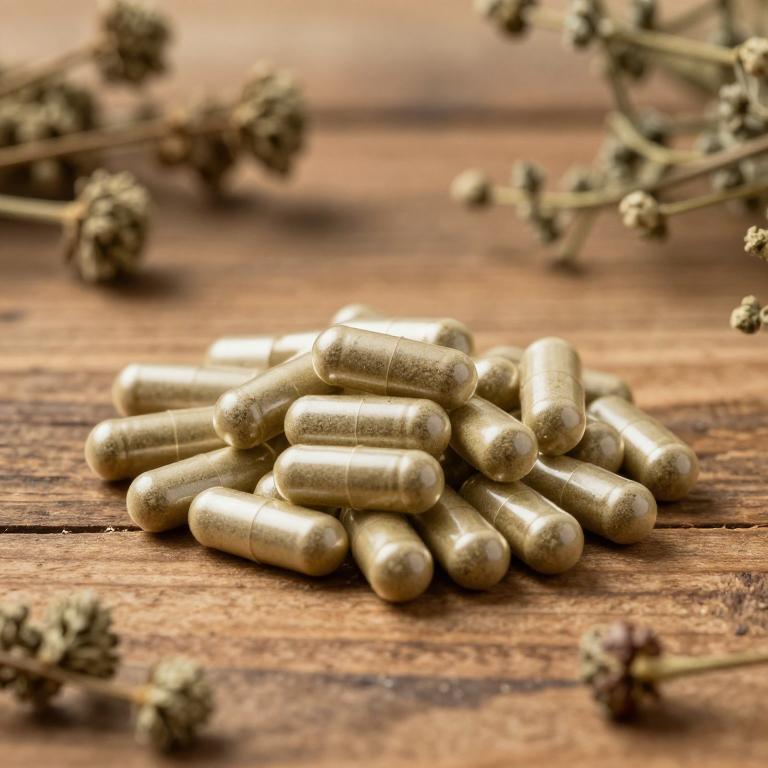
Valeriana officinalis, commonly known as valerian, is a traditional herbal remedy that has been used for centuries to promote relaxation and improve sleep.
Herbal capsules containing valerian root are often marketed for their potential to alleviate symptoms of mild depression and anxiety by supporting emotional balance. The active compounds in valerian, such as valerenic acid and essential oils, may influence neurotransmitter activity in the brain, potentially enhancing mood regulation. While some studies suggest valerian may have a mild antidepressant effect, more research is needed to confirm its efficacy and long-term safety.
As with any supplement, it is advisable to consult a healthcare professional before using valerian for depression, especially if taking other medications.
3. Maypop (Passiflora incarnata)
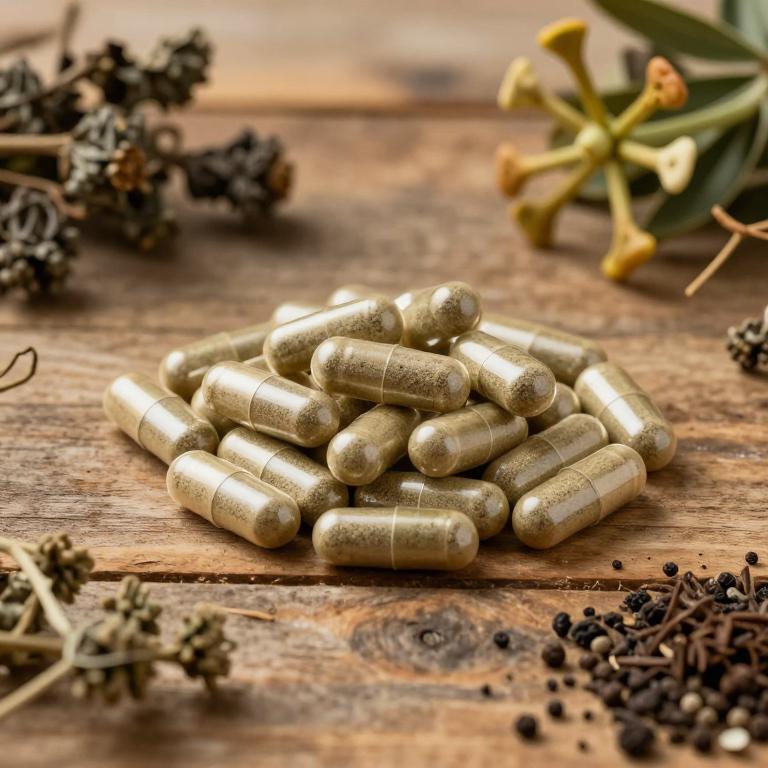
Passiflora incarnata, commonly known as passionflower, is a herbal remedy that has been traditionally used to support mental health, including the management of symptoms associated with depression.
The herbal capsules of Passiflora incarnata are standardized to contain specific concentrations of active compounds, such as flavonoids and alkaloids, which are believed to contribute to its calming effects. Clinical studies suggest that passionflower may help reduce anxiety and improve mood by influencing neurotransmitter activity in the brain. As a natural alternative to conventional antidepressants, passiflora incarnata herbal capsules are often recommended for individuals seeking a complementary approach to depression treatment.
However, it is important to consult with a healthcare provider before starting any new herbal supplement, especially if you are already on medication or have underlying health conditions.
4. Licorice (Glycyrrhiza glabra)

Glycyrrhiza glabra, commonly known as licorice root, has been traditionally used in herbal medicine for its potential antidepressant effects.
Recent studies suggest that the active compounds in licorice root, such as glycyrrhizin and flavonoids, may help regulate mood by influencing neurotransmitter activity and reducing inflammation in the brain. Herbal capsules containing Glycyrrhiza glabra are often used as a complementary therapy for mild to moderate depression, offering a natural alternative to conventional medications. However, it is important to consult a healthcare professional before using these capsules, as they may interact with other medications or have side effects in certain individuals.
Overall, while promising, more research is needed to fully understand the efficacy and safety of licorice root in treating depression.
5. Chaste tree (Vitex agnus-castus)

Vitex agnus-castus, commonly known as chasteberry, is a herbal remedy that has been traditionally used to support hormonal balance and mood regulation.
Herbal capsules containing Vitex agnus-castus are often used as a natural alternative for individuals experiencing symptoms of depression, particularly those related to hormonal imbalances such as those seen in premenstrual syndrome or menopause. Studies suggest that Vitex may influence the pituitary gland and help regulate the production of hormones like prolactin and luteinizing hormone, which can indirectly impact mood and emotional well-being. While it is not a substitute for professional medical treatment, some research indicates that Vitex may help alleviate depressive symptoms when used in conjunction with other therapeutic approaches.
As with any herbal supplement, it is important to consult with a healthcare provider before starting Vitex agnus-castus, especially for individuals with pre-existing health conditions or those taking other medications.
6. Maca (Lepidium meyenii)
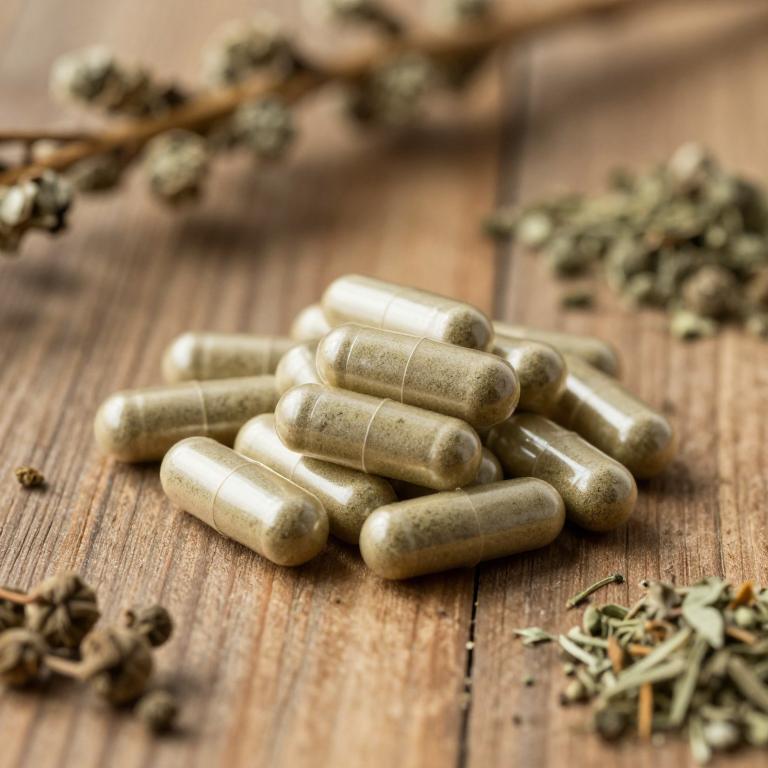
Lepidium meyenii, commonly known as Peruvian maca, has been traditionally used in South America for its potential health benefits, including its possible effects on mood and energy levels.
Herbal capsules containing Lepidium meyenii are often marketed as natural supplements that may support mental well-being and alleviate symptoms of depression by enhancing mood and reducing fatigue. Research suggests that maca may influence neurotransmitter activity, potentially contributing to improved emotional balance and cognitive function. However, while some studies show promising results, more rigorous clinical trials are needed to fully establish its efficacy for depression.
As with any supplement, it is advisable to consult a healthcare professional before use, especially for individuals with existing mental health conditions.
7. Kava (Piper methysticum)
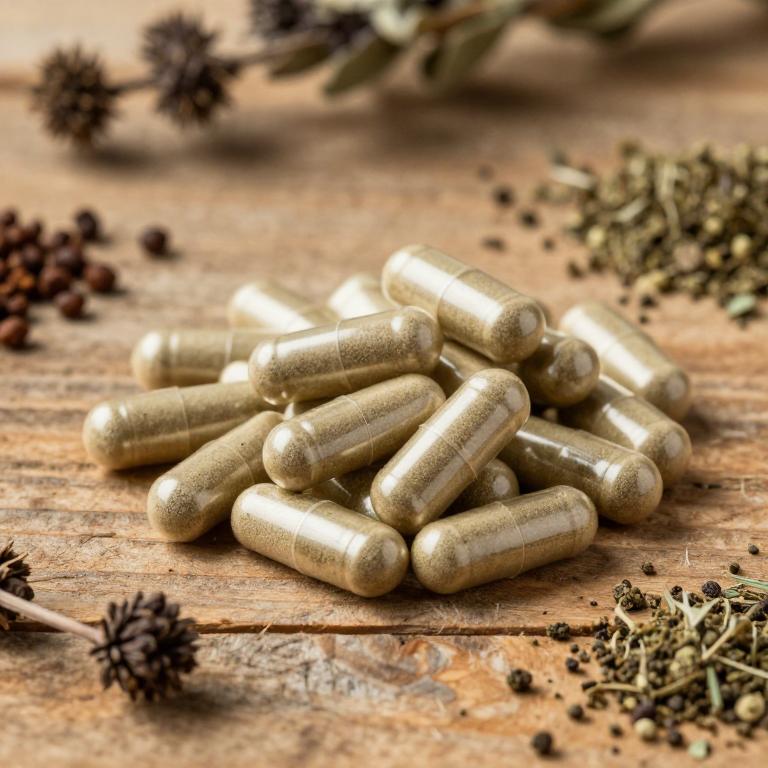
Piper methysticum, commonly known as kava, has been traditionally used in the Pacific Islands for its calming and mood-enhancing properties.
Herbal capsules containing piper methysticum are often marketed as natural remedies for depression due to their potential to reduce anxiety and improve emotional well-being. The active compounds in kava, such as kavalactones, may influence neurotransmitters like GABA, promoting relaxation and a sense of calm. While some studies suggest kava may offer relief for mild depressive symptoms, its use should be approached with caution due to potential side effects and interactions with other medications.
As with any supplement, it is advisable to consult a healthcare professional before incorporating piper methysticum capsules into a treatment plan for depression.
8. Black cumin (Nigella sativa)
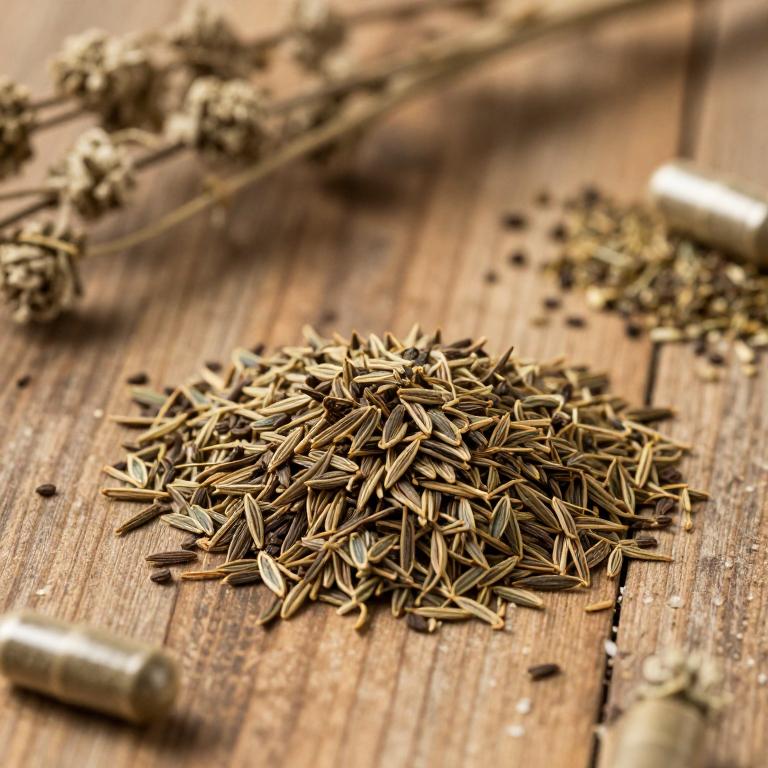
Nigella sativa, commonly known as black cumin, has gained attention for its potential therapeutic effects on mental health, including its possible role in alleviating symptoms of depression.
The seeds of this herb contain bioactive compounds such as thymoquinone, which have been studied for their antioxidant, anti-inflammatory, and neuroprotective properties. Clinical research suggests that Nigella sativa herbal capsules may help improve mood and reduce depressive symptoms by modulating neurotransmitter activity and reducing oxidative stress in the brain. While more studies are needed to fully understand its efficacy, some individuals have reported positive outcomes when using these capsules as a complementary therapy.
As with any supplement, it is important to consult with a healthcare provider before incorporating Nigella sativa into a depression management plan.
9. Golden root (Rhodiola rosea)
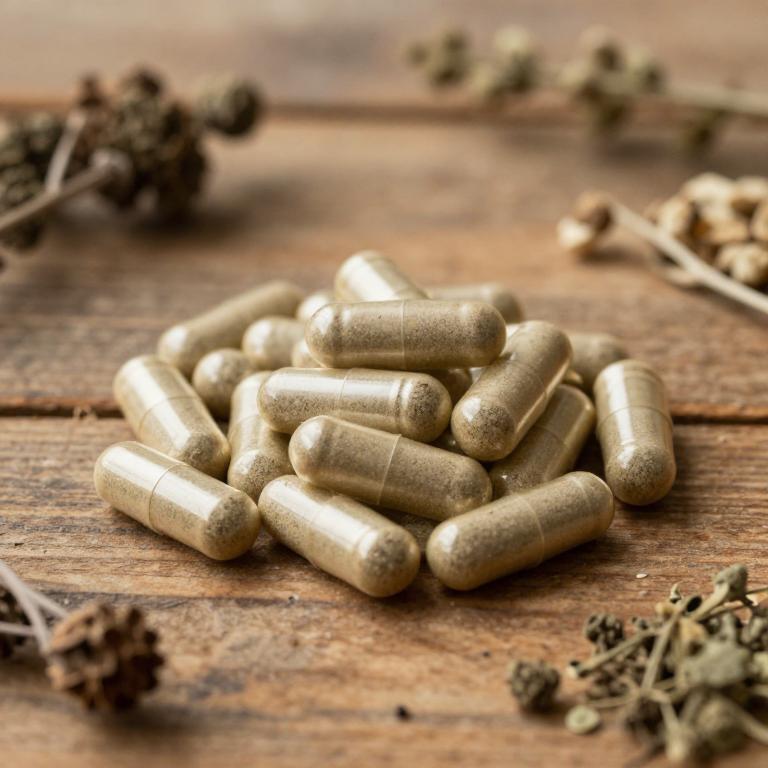
Rhodiola rosea, also known as the "golden root," is an adaptogenic herb that has been traditionally used to enhance physical and mental performance.
Recent studies suggest that rhodiola rosea herbal capsules may help alleviate symptoms of depression by regulating neurotransmitter levels and reducing oxidative stress in the brain. These capsules are often taken as a natural supplement to support mood stabilization and increase resilience to stress. They are generally well-tolerated, with few side effects, making them a popular alternative for those seeking non-pharmacological treatment options.
However, it is important to consult a healthcare provider before starting any new supplement regimen, especially for individuals with existing mental health conditions.
10. Blessed thistle (Cnicus benedictus)
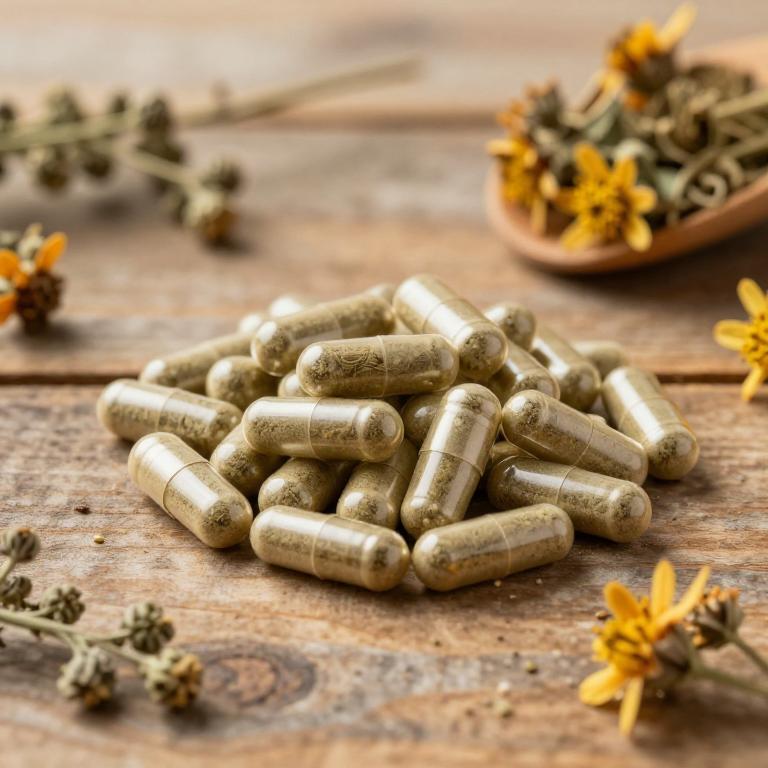
Cnicus benedictus, also known as blessed thorn, is a herbal remedy that has been traditionally used for its potential antidepressant properties.
Herbal capsules containing Cnicus benedictus are believed to support mood regulation and alleviate symptoms of mild to moderate depression by promoting emotional balance and reducing feelings of anxiety. The plant contains bioactive compounds such as flavonoids and alkaloids, which may contribute to its calming and mood-enhancing effects. These capsules are often used as a natural alternative or complementary therapy to conventional antidepressants, though they should not replace professional medical advice.
It is important to consult a healthcare provider before using Cnicus benedictus supplements, especially if you are taking other medications or have underlying health conditions.